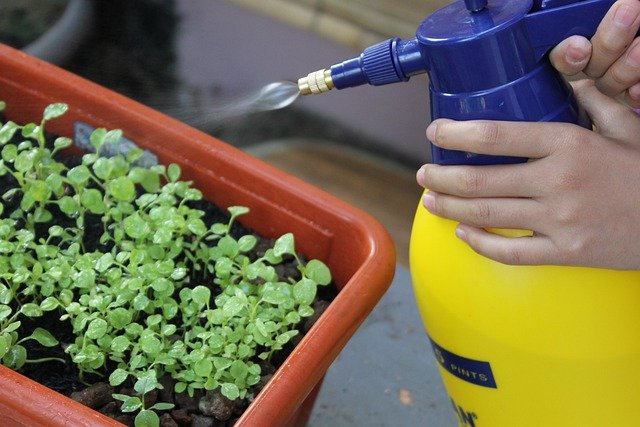Pesticides derived from organic sources, especially plants and herbs, are known as organic pesticides. Despite being a small country, our nation is rich in plant diversity, and plants have been utilized for human health and agricultural purposes since ancient times. The use of organic pesticides is encouraged due to their safety and environmental friendliness.
Advantages of Using Organic Pesticides:
- Environmental Safety: Organic pesticides do not harm the environment.
- Selective Action: Biopesticides inhibit the growth of harmful insects without adversely affecting beneficial insects.
- Soil Health: They have no side effects on soil microorganisms and earthworms.
- Non-Toxicity: They are non-toxic to fish, birds, and livestock.
- Immediate Use: Crops can be harvested and used immediately after spraying.
- No Residues: Organic pesticides are safe for the environment as they do not leave long-term residues.
Herbal Pesticides:
- Neem Leaves, Bark, and Soap:
- Preparation: Crush 2 kg of neem leaves and 1.5 kg of neem bark. Mix the crushed leaves, bark, and 50 grams of powdered soap with 5 liters of water. Boil until the water reduces to 1 liter and cool it. Add 9 liters of water and spray.
- Effectiveness: Controls all types of flies, beetles, worms, and wasps.
- Neem Leaf Powder:
- Preparation: Dry neem leaves in the shade for 1-2 weeks and crush them. For every 50 kg of seeds to be preserved, mix 1 kg of neem leaf powder. To extend shelf life, mix an equal amount of dhutra leaf powder.
- Effectiveness: Suppresses stored crop pests.
- Neem Seeds:
- Preparation: Dry 1 kg of neem seeds in the shade, peel, and grind them to make a powder. Mix 75 grams of powdered soap with the neem powder and combine with 100 liters of water to make a 2% solution. Leave the solution overnight, then boil for 2-3 hours at 70-80°C, cool, and use.
- Effectiveness: Controls various insects, including leafhoppers and caterpillars, and acts as an anthelmintic.
- Mahogany Seeds:
- Preparation: Finely chop the white part of 8-10 raw mahogany seeds, soak for 7 days, strain, and mix with 50 grams of cloth cleaning powder. Spray the mixture.
- Effectiveness: Controls brown planthoppers, maggots, leafrollers, and diamondback moths.
- Tobacco Leaves:
- Preparation: Soak 1 kg of raw tobacco leaves in 10 liters of water overnight and shake. Alternatively, soak 10 large dry leaves in 10 liters of water overnight and strain.
- Effectiveness: Controls mites and other pests.
- Bishkatali and Dhol Kalmi:
- Preparation: Soak 1 kg of bishkatali or dhol kalmi leaves and stems in 10 liters of water, cover, and spray.
- Effectiveness: Controls aphids, flies, leaf, and fruit borers.
- Tomato Plants:
- Preparation: Mix 1 kg of tomato stems and leaves in 5 liters of water and boil for 15-20 minutes. Strain and spray.
- Effectiveness: Suppresses leaf-sucking insect larvae.
- Blackberry Leaves:
- Preparation: Mix 1 kg of blackberry leaves in 5 liters of water and boil for 30 minutes. Cool and use.
- Effectiveness: Suppresses caterpillars, brown planthoppers, and leaf-sucking insects.
Using these organic pesticides can help manage pests effectively while maintaining environmental safety and promoting sustainable agriculture.

